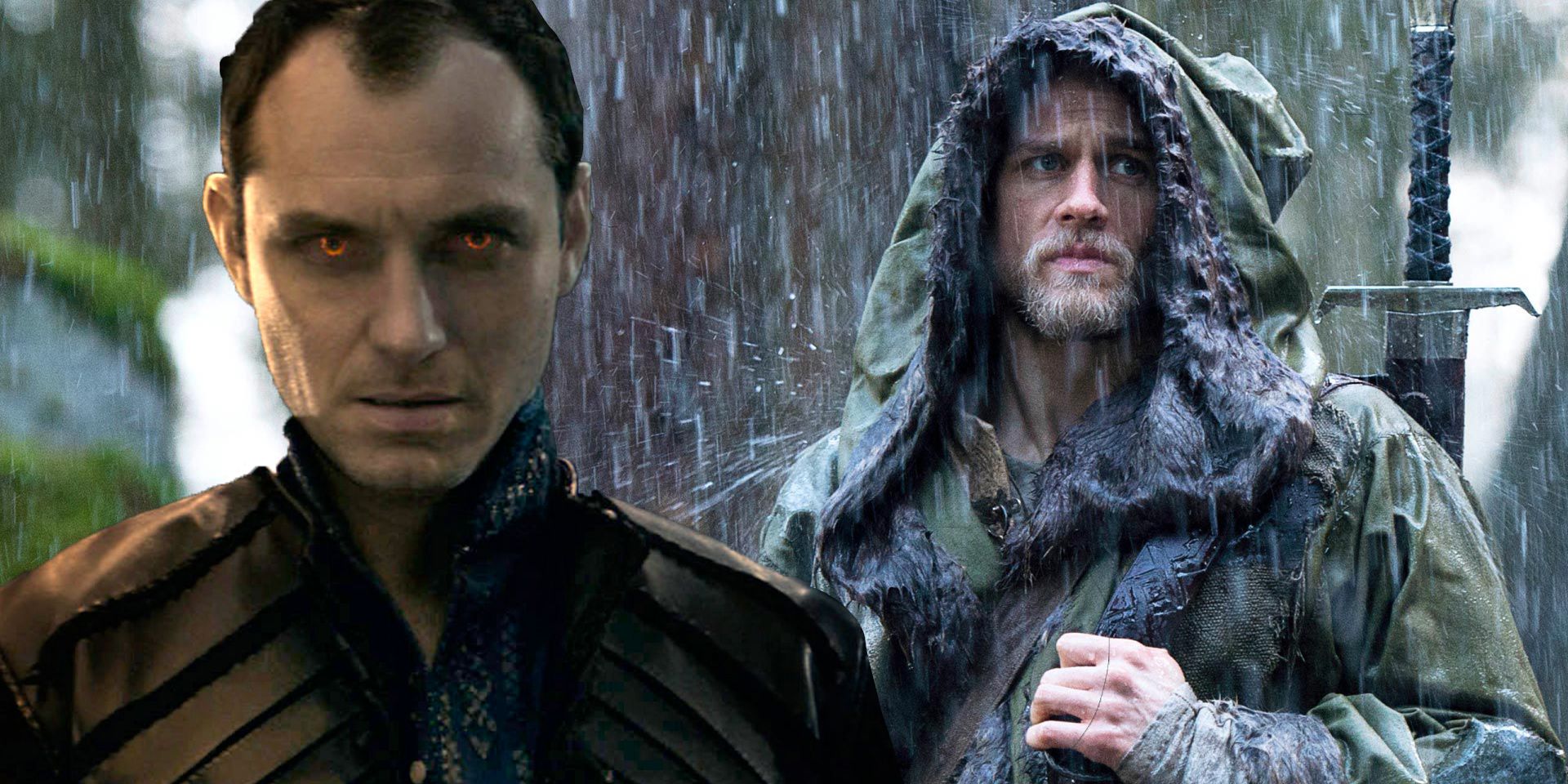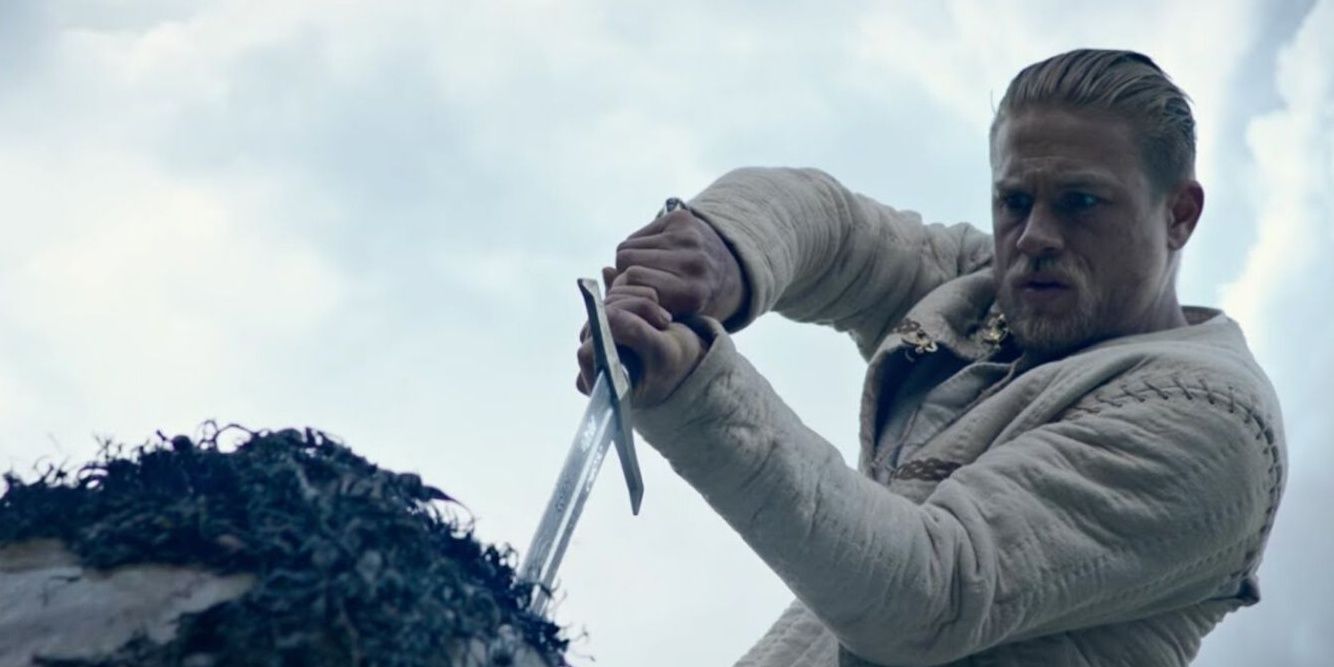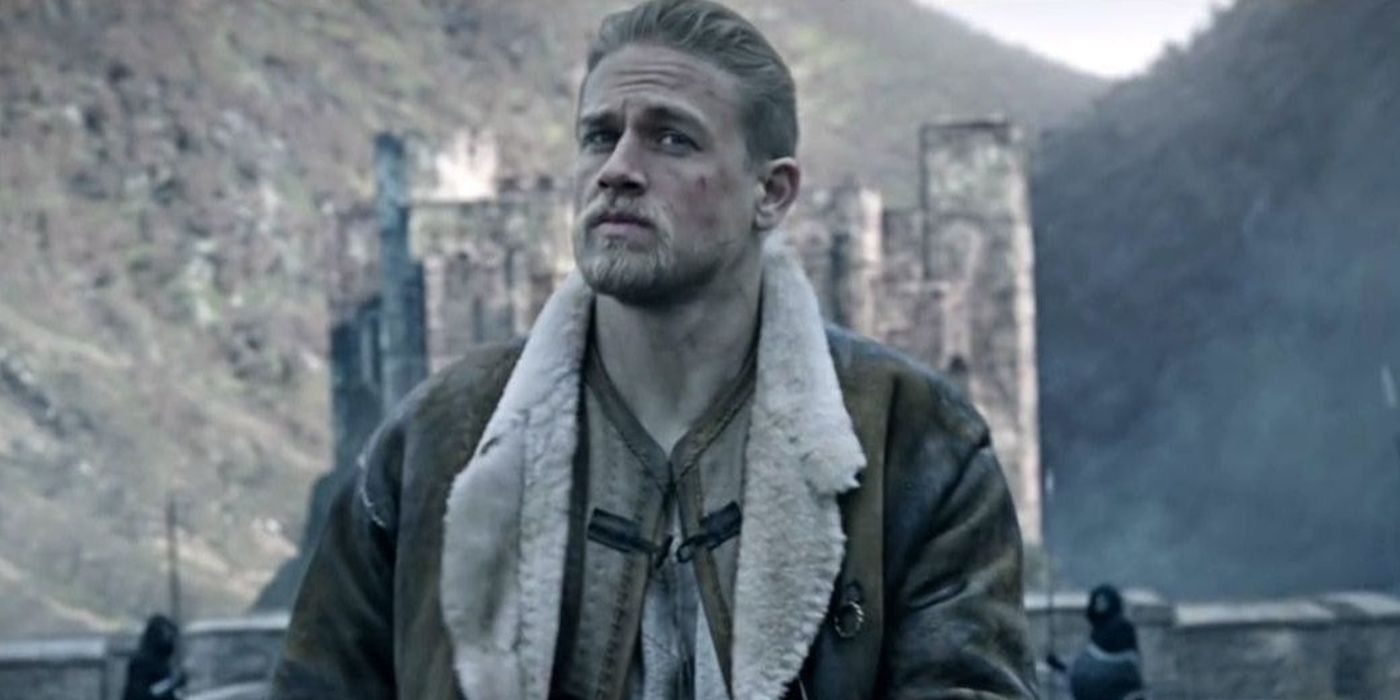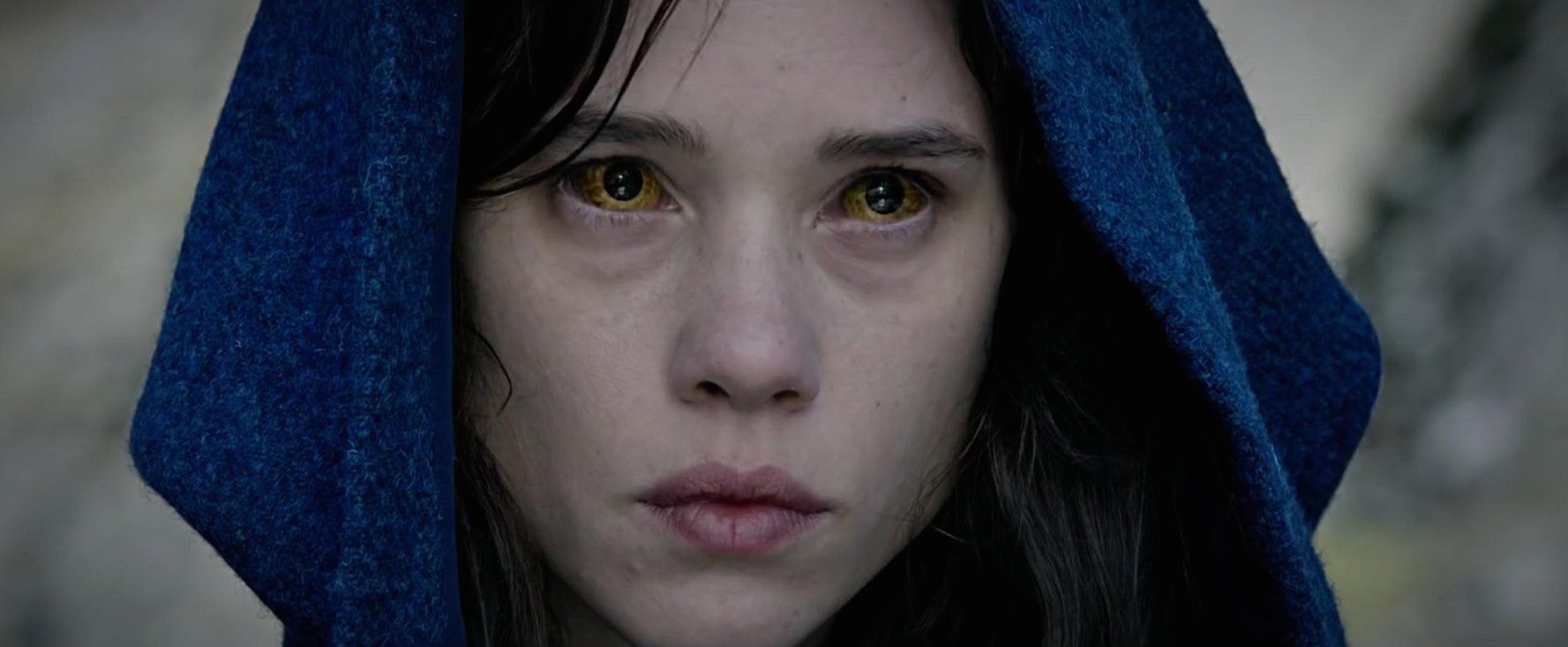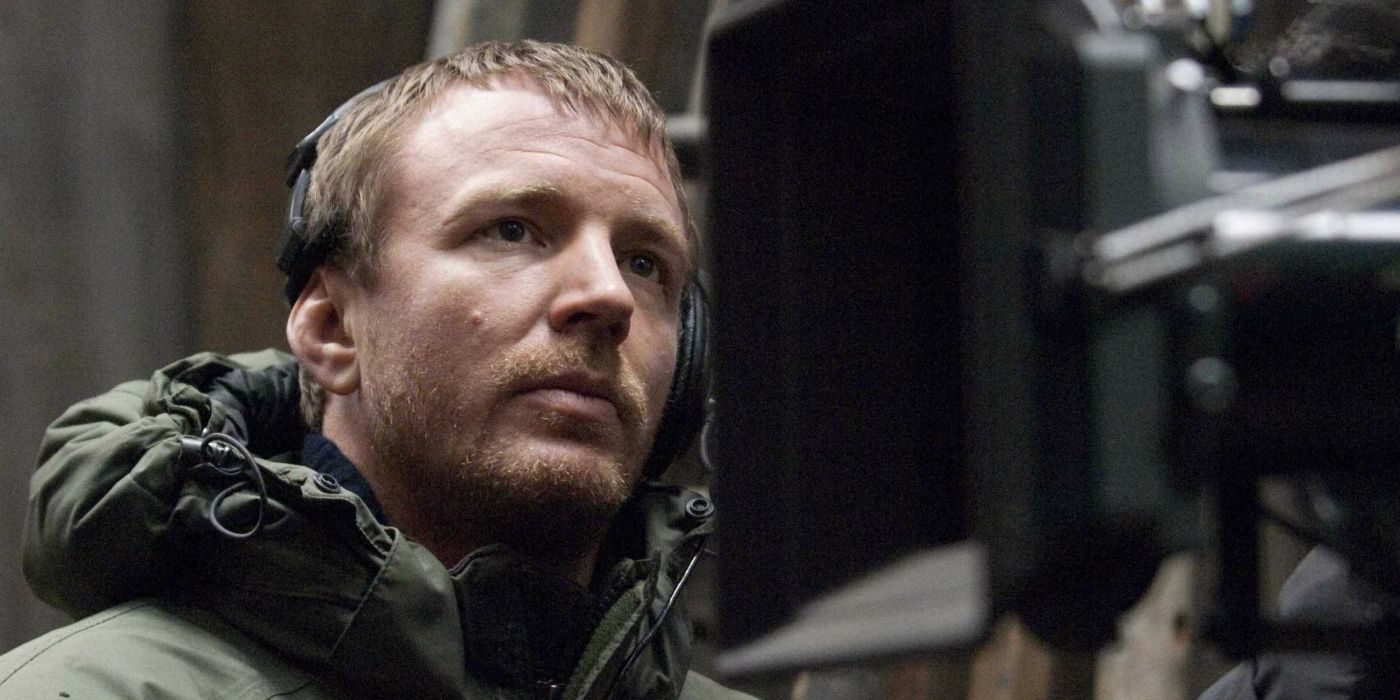Guy Ritchie’s King Arthur: Legend of the Sword had lofty ambitions, but ultimately became a commercial and critical disaster. In 2017, a number of high-profile blockbusters attempted to replicate the stratospheric success of the Marvel Cinematic Universe. Many major studios hoped to follow in the footsteps of Disney and Marvel Studios with high-concept big-budget tales that often drew from familiar source material, all in the hopes of launching the next multi-pronged expanded universe that could produce hit after hit for the following decade and beyond. Many movies before and after 2017 tried and failed to copy the MCU, but it was 2017 in particular that featured the biggest losses: Universal's attempts to establish the Dark Universe fizzled out with The Mummy, the relaunch of Power Rangers left little impression with audiences, and Luc Besson's costly passion project Valerian and the City of a Thousand Planets failed to earn enough at the box office to justify a sequel. The 2017 movie from this trend that ended up losing the most money was Guy Ritchie’s King Arthur: Legend of the Sword.
Produced by Akiva Goldsman and released on the cusp of the summer blockbuster season by Warner Bros., Legend of the Sword seemed doomed from the beginning. The studio had tried multiple times to make another King Arthur movie following the 2004 film King Arthur starring Clive Owen, which did solid but unspectacular business. Eventually, Warner Br0s. decided that they wanted their own Arthurian cinematic universe, a six-movie saga that would combine the various figures of the lore Avengers-style. The end result was an extremely expensive movie that left audiences cold. From a reported budget of $175 million, Legend of the Sword only grossed $148.7 million worldwide. The Hollywood Reporter claims that the box office slump led to a loss of over $150 million for both Warner Bros. and Village Roadshow Pictures. The studio’s hopes of a franchise were quickly put aside to be forgotten.
While the movie itself has its moments and is nowhere near the disaster some reviews painted it as, King Arthur: Legend of the Sword is a mess, a mish-mash of ideas and intents that never fully came together and offered a strong exemplification of how studios should and should not try to start a new franchise. The errors the film made are relatively simple ones that Hollywood is prone to repeating, especially when they try to chase trends. Here’s what went wrong with Legend of the Sword.
The Movie Overcomplicates the Source Material
The key King Arthur stories are deliberately simple myths that imagined a legendary version of Britain and its heroes as the ultimate display of patriotism. These tales have been retold countless times over the centuries with mixed success, and it’s not hard to see why a studio like Warner Bros. would want to add a fresh twist to the material for 2017's audiences who knew the old stories well but didn’t have much emotional investment in them beyond gentle nostalgia for children’s stories and Disney’s The Sword in the Stone.
Legend of the Sword’s approach to this conundrum, unfortunately, was to greatly overcomplicate what should have been a simple set-up. Rather than give audiences the easy-to-follow story of Arthur’s rise to power, the movie added a superfluous backstory and unknown characters who make no impression. The basic arc for Arthur and his journey is somehow simultaneously messy and childlike in its condescension. It doesn’t help that the film often feels like a lot of crucial details were left on the cutting room floor, so the overall viewing experience is made even more needlessly complex.
The Film is Hampered by its Franchise Set-Up
All those tangled strings that try to establish a bunch of sequels that audiences had little to no reason to care about are the fault of Warner Bros. and Village Roadshow’s eagerness to make the film more than a stand-alone story. This is the big problem that every MCU copycat encountered over the past five years or so. They all wanted to rush the first phase and get to the mash-ups, essentially jumping from Iron Man to The Avengers. What these failed franchises forgot was that Iron Man wasn’t made with the sole purpose of setting up several other films. It had the potential to kickstart what would eventually become the most financially lucrative movie series ever made, but had it been a box office disappointment, the film itself would have been able to stand on its own two legs. It wasn’t reliant on dropped hints or promises of things to come.
King Arthur suffers greatly from this confusion of priorities. Characters are introduced as obvious sequel bait then given no further development, most of the well-known bits from Arthurian lore don't appear at all, and the film touches on next to nothing from those iconic tales in terms of adventure, plot, or style. Those elements were clearly left for further movies and the story audiences got instead was yet another heroic origin story that copied the mold of countless movies before it, including, of course, Iron Man.
Big Changes Were Made During Production
It’s not uncommon for films on the scale of Legend of the Sword to go through some big rewrites or on-set changes, but the ones made here were easily to the detriment of the finished product. The most obvious example of this came in the form of the inexplicable decision to have Guinevere, arguably the most iconic female character in Arthurian lore, become simply known as "the Mage." As played by Àstrid Bergès-Frisbey, this character is clearly Guinevere, even though she's never named as such. In an interview with Den of Geek, the film's star Charlie Hunnam said the change came during production due to "partly the film, and partly the actor dictating that i[t] was going to be something different, and Guy having the confidence and versatility to just roll with it and realize that what he intended wasn’t going to work, and him recognizing the value of that being something else." It’s inevitable that changes happen from the script stage to shooting itself, but the decision to all but erase one of a mere handful of named female characters in the movie to a cipher for yet more sequel potential felt both lazy and insulting.
It Doesn’t Let Guy Ritchie Be Guy Ritchie
After splashing onto the scene with Lock, Stock, and Two Smoking Barrels and Snatch, Guy Ritchie has made a strong career for himself in recent years as a reliable studio hand who can put aside his own artistic flourishes in favor of being a journeyman with costly intellectual properties, as shown by the billion-dollar success of Aladdin and the growing cult status of The Man From U.N.C.L.E. While there are moments in Legend of the Sword where Ritchie’s panache shines through, he’s clearly overburdened by the weight of making a studio’s franchise-starter, something that can then be expanded by other directors devoid of distinctive style. It seems curious to hire a director whose visuals and characters are so instantly recognizable, only to ask him to strip the script of such elements for a bland experience. The movie is at its most enjoyable when it just lets Ritchie make a rollicking story about Arthur and the lads getting into havoc on the streets of Londinium. When it wants to be Iron Man in the Medieval age, it sinks into generalities of story and style that make it wholly indistinguishable from dozens of other failed blockbusters.
Ultimately, this commitment to blandness is what sank King Arthur: Legend of the Sword. It wanted to be a whole bunch of other movies but had no interest in being a good solo King Arthur film. Like many stories before and after it, the Arthurian stories were simply being appropriated by studios looking for a cheap or free IP with big-name recognition that they could spin into a multi-billion-dollar MCU ripoff. There’s a reason that basically every single attempt at that has failed, and Legend of the Sword is the prime example of lessons that should be learned from this ongoing experiment.

